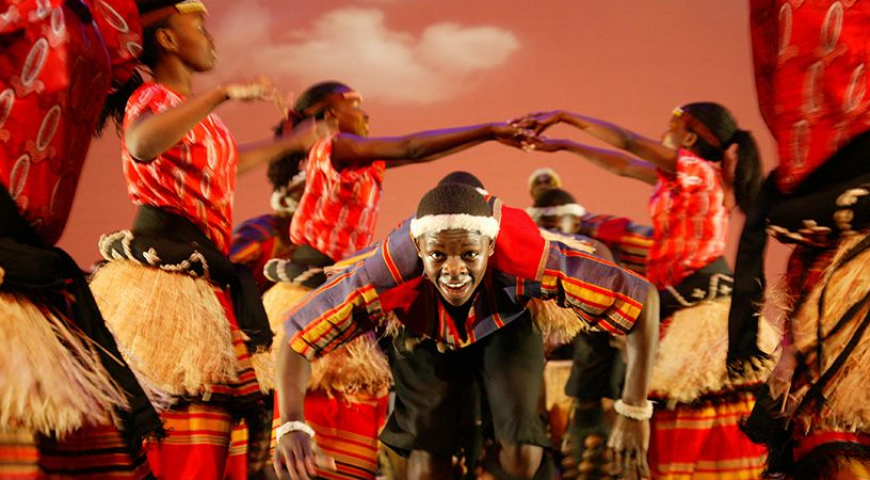In Summary
- Uganda ranks as the most ethnically diverse country in the world with 93.02% according to the Goren Ethnic Fractionalization Index
- Nigeria is known to have the most ethnic groups with over 250 ethnic groups, but in terms of diversity it ranks 9th due to its population spread
- In countries like the Republic of the Congo and Liberia, a single ethnic group does not hold dominance, so political power is equally shared, but this also makes politics unpredictable and rigid.
Deep Dive!!
Ethnic diversity is more than having different tribes or speaking multiple languages, it’s about the measurable differences. Researcher Ozkan Goren introduced a global index for ethnic Fractionalization in 2013. His approach was analyzing the possibility of picking two people at random from the same country and checking the chance of them belonging to the same ethnic group. This approach is simple but powerful.
The more ethnically diverse a country is, the higher the percentage. If a country has a 90% index then it simply means there is a 90% chance that two citizens won’t have the same ethnic identity. This time, it’s not about the number of ethnic groups but how they are evenly spread around the country.
Africa dominates the global chart using this metric. The top 10 list in the global chart are all African countries. Here are the top 10 most ethnically diverse countries in Africa.
10. Central African Republic

With about 80 officially recognized ethnic groups in the Central African Republic, it has quietly been recognized as one of the ethnically segmented societies. Having 82.95% ethnic fractionalization, CAR diversity is a strength and can also be a problem as the ethnic groups, including the Banda, Baya, Sara, and Madija, are across the country but are not dominant. Due to the lack of this dominance, there are difficulties in power-sharing, especially during political conflicts. To balance the diversity, French is the unifying language in governance and education.
9. Nigeria

Nigeria is known to have the highest number of ethnic groups in Africa, but surprisingly, it does not top the list in terms of diversity, with a score of 85.05% fractionalization. With over 250 ethnic groups and majorly dominated by the three major groups (Yoruba, Igbo, and Hausa), the ethnic groups have controlled the political power system. Notably, Nigeria’s Middlebelt has more ethnic groups than some African countries with the number of communities ranging over 100,000 people. These micro-ethnic groups influence the national unity of the country, especially during elections and census activities.
8. Kenya

Kenya has an 85.88% score in ethnic fractionalization. This score can be attributed to smaller groups like Kamba, Luo, and Kikuyu and smaller communities like El Molo, whose population is believed to be under 1000. Kenya’s ethnic identity often defines its political loyalty with people most likely voting along their ethnic lines. Political alliances in Kenya are usually not based on beliefs or ideas but rather on ethnic groups.
7. Chad

Chad has a diverse ethnic group, with over 100 living in different parts of the country. Having a score of 86.20%, Chad is not only diversified ethically but also in religion. We have Muslims mostly in the north, and they speak Arabic, while in the south, they are mainly Christians or follow traditional religions with multiple cultures and languages. This diversity has also made national decisions sometimes complex.
6. Cameroon

Cameroon, often called the “African miniature,” has over 200 ethnic groups with over 250 languages spoken and a score of 86.35% ethnic fractionalization. Notably, Cameroon has a long-standing Anglophone-Francophone divide deeply rooted in its cultural identity. The Northwest and Southwest regions often feel linguistically and ethnically different from the other parts of the country.
5. Republic of the Congo

With a score of 87.47%, Republic of the Congo ethnic groups are evenly distributed around the country. Although the largest group, Kongo, represents half of the population, others include M’ Bochi, Sangha, and Teke. This evenly distributed influence has kept the national power more negotiable but has also negatively impacted the political tensions in the country.
4. Democratic Republic of the Congo

Democratic Republic of the Congo has over 200 ethnic groups and holds the position of the second-largest country by landmass. Having an ethnic diversity of 87.47%, what makes it distinct is its scale of fragmentation. The ethnic diversity has built tensions and this has led to some of the country’s deadliest conflicts. National communication is a continuous balancing act due to the four national languages- Lingala, Swahili, Kikongo, and Tshiluba each tied to different regions.
3. Madagascar

Madagascar is made up of mixed ethnic groups with African and Austronesian ancestry which is rare in Africa. The island has an ethnic diversity score of 87.91%. Some of the ethnic groups, like the Betsimisaraka, Merina, and Sakalava, have facial features, customs, and languages that are rooted in both Asia and Africa. Madagascar has one of the most unique cultural blends in Africa, with the Malagasy dialect having linguistic ties to Indonesia and Malaysia.
2. Liberia

Liberia has 16 major ethnic groups with Kpelle, Bassa, Gio, and Grebo being the largest. Having an ethnic diversity score of 90.84% debunks the founding history of the freedom of American slaves, as its ethnicity is deeply rooted in the pre-colonial networks. Liberia’s influence of ethnic identity is still surprisingly solid, as in rural areas, it still determines land ownership and local leadership.
1. Uganda

Uganda has the highest fractionalization score of 93.02% not just in Africa but also globally. With over 56 ethnic groups, the Baganda ethnic group is the largest but not the majority. The ethnic identity in Uganda affects the Clan systems, language, food traditions, and marriage customs. The country’s deep fragmentation is clearly seen in the fact that there is no single ethnic language spoken across the country. Uganda has maintained a relative ethnic peace compared to others.



